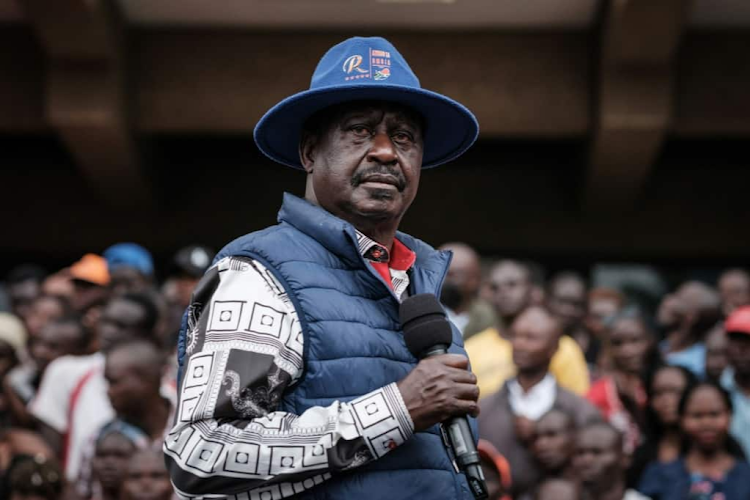Speaking at the Moi Stadium in Kisumu, Raila said the people of Kisumu will be part of the struggle to ensure electoral justice is delivered in Kenya.
He further stated that they will not allow the country to be taken back to a single-party state.
Raila also noted that they will ensure the Independent Electoral Commission is constituted of non-partisan individuals;
Here is his six point declaration;
"We the people are drawn from all counties of Nyanza right here in the city of Kisumu on the 18 day of February 2022 to deliberate on the state of our nation here by resolve As follows;
One, we are keenly aware of the significance of elections to our welfare as a people and our progress as a nation. Consequently, we willingly and fully associate with the struggle to ensure electoral Justice In our country.
Two, we willingly and fully associate with the struggle to ensure that at all times the leadership of this country shall be picked through the ballot in free, fair, transparent and credible elections and that at all times the choices we make on the ballot shall be respected and stolen elections shall not be allowed to stand.
Three, being hit by the rising cost of living and unable to afford basic goods and services as a result of inhumane government policies, we support and will actively participate in any action being taken by the people of Kenya to bring down the rising cost of food fuel electricity, fees and salaries.
Four, we will fully support and participate in all efforts by Kenyans to make the government listen and ensure better standards of living for all Kenyans.
Five, having participated in the past struggles that have defined our journey as a nation, we shall not let the gains get lost. Instead, we fully and willingly join our struggle to preserve our hard-won democracy and multiparty politics and reject all attempts to make Kenya a single-party state.
Six, with the hindsight of the 2007 elections, and the violence that followed, we will work with other Kenyans to ensure the IEBC is constituted in a way that invites the confidence of the people of Kenya and that it is seen to be non-partisan for the sake of future stability of our nation." By Brian Oruta, The Star






